Deciding Between Buying and Leasing a Car
Choosing between buying and leasing a car can be a challenging decision. When you buy a car, you face higher monthly payments, but eventually, you own the vehicle outright. Leasing, on the other hand, offers lower monthly payments and allows you to drive a more expensive car than you might be able to afford to buy, but you never stop paying for the vehicle. With leasing becoming increasingly popular, it's important to understand the pros and cons to make an informed decision.
Understanding Car Loans
Buying a car with a conventional loan is straightforward. You borrow money from a financial institution and make monthly payments over several years. Each payment consists of interest and principal. As you pay down the principal, you build equity in the car. By the end of the loan term, the car is yours to keep or sell. You can drive the car as much as you want and customize it without penalty, though excessive wear and tear can lower its resale value.
The Rise of Leasing
Leasing has become a more attractive option, especially as new-car prices remain high. According to Cox Automotive, the average new-car price exceeded $47,400 in January 2024. Despite a recent dip in leasing rates reported by Experian, many people still find leasing appealing due to its lower monthly payments and the ability to drive a new car every few years.
When you lease, you pay to drive a car for a set period, usually two to three years. The monthly payments are lower than those for a loan because you're only paying for the vehicle's depreciation and finance charges. However, you must return the car at the end of the lease term, unless you choose to buy it.
Pros and Cons of Leasing
Leasing has several advantages. It allows you to drive a new car during its most reliable years, often covered by the manufacturer’s warranty. Leases may include maintenance like oil changes. Leasing can also enable you to drive a higher-end vehicle with the latest safety features and technology. Additionally, business owners may find tax benefits in leasing. At the end of the lease, you simply return the car to the dealer without worrying about its resale value.
However, leasing has its downsides. Over time, leasing can cost more than buying, as you continually make payments without building equity. Lease agreements usually have mileage limits, and exceeding them can result in significant fees. You'll also face charges for excessive wear and tear, and early termination of a lease can be very costly. Customizing a leased vehicle is limited, as you need to return it in its original condition.
Long Car Loans as an Alternative
Some buyers opt for long-term loans of six to eight years to lower monthly payments. However, long loans can lead to being "upside down," where you owe more than the car's value. This is risky if you need to sell the car early or if it’s totaled in an accident. For those who like to drive a new car every few years, leasing might be a better option than continually trading in vehicles with long-term loans.
Comparing Costs
Comparing a six-year loan with two back-to-back three-year leases reveals that leasing generally costs more over the same period. However, the appeal of low monthly payments and driving a new car regularly might outweigh the additional cost for some people. If you dislike the restrictions of leasing, consider buying a less expensive new car or a well-maintained used car. Certified pre-owned vehicles from franchised dealers can also be a good option.
Leasing Electric Vehicles
Leasing might be particularly beneficial for electric vehicle (EV) buyers. Leasing can qualify for a full $7,500 federal tax credit without meeting restrictive requirements that buyers face. Additionally, leasing can protect you from the rapid depreciation and technological changes in the EV market. If the manufacturer reduces the EV's price, the impact on your leased vehicle’s value is not your concern.
Negotiating Lease Terms
Many assume that lease terms are non-negotiable, but you can negotiate the price just as you would when buying a car. Remember, the best lease deals are often available to those with excellent credit and may be tied to clearing out slow-selling models.
Key Differences Between Buying and Leasing
Buying means you own the vehicle, while leasing means you use it for a period and return it. Buying involves higher up-front costs and monthly payments but results in ownership. Leasing requires lower monthly payments and fewer up-front costs but comes with mileage limits and wear-and-tear charges. In the long term, buying can be cheaper if you keep the car after the loan is paid off, whereas leasing provides the benefit of driving a new car every few years.
AutoGuide Advice
Evaluate Your Financial Situation: Assess your budget and long-term financial goals. Buying a car means higher monthly payments initially, but it can be more cost-effective in the long run. Leasing requires lower monthly payments, but you won't own the car at the end of the lease term.
Consider Your Driving Habits: If you drive a lot, buying might be a better option. Lease agreements typically have mileage limits, and exceeding these can result in costly fees. Calculate your average annual mileage and compare it with lease terms.
Plan for the Long Term: Consider how long you plan to keep the vehicle. Buying is generally cheaper if you keep the car for several years after the loan is paid off. Leasing is better if you prefer driving a new car every few years and don't mind continuous payments.
Check for Maintenance Costs: When leasing, many agreements include maintenance, reducing unexpected costs. However, once a car loan is paid off, you only have to worry about maintenance and repairs, which can be more economical over time.
Research Resale Values: If you decide to buy, choose a car with a high resale value. This can provide better trade-in or resale options when you decide to upgrade.
Consider Certified Pre-Owned Vehicles: For a balance between cost and reliability, consider certified pre-owned vehicles. They often come with warranties and are less expensive than new cars.
Understand Lease Terms: If leasing, understand all terms and conditions. Be aware of mileage limits, wear-and-tear policies, and potential fees for early termination.
Leverage Tax Benefits: Business owners should explore tax benefits associated with leasing. Leased vehicles can offer significant tax deductions, making it a financially savvy option for businesses.
Prepare for End-of-Lease Costs: Be ready for potential costs at the end of the lease term. This can include fees for excess mileage, wear and tear, and other end-of-lease charges.
Monitor Market Trends: Stay informed about market trends and promotions. Sometimes, automakers offer significant incentives on leases, making it a more attractive option temporarily.
This article was co-written using AI and was then heavily edited and optimized by our editorial team
More by AutoGuide.com Staff

















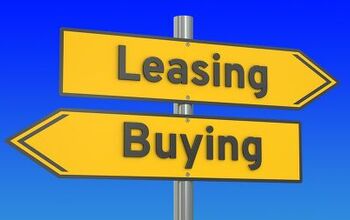
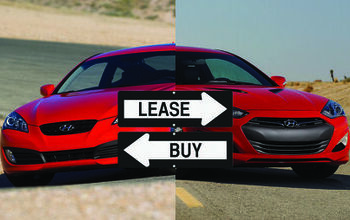
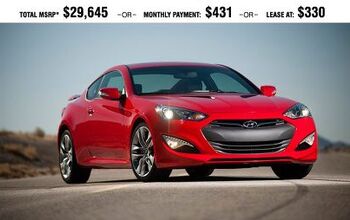








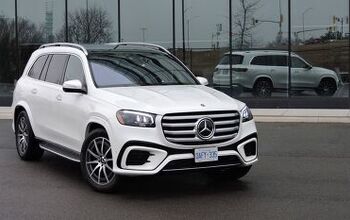



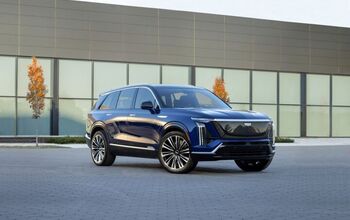
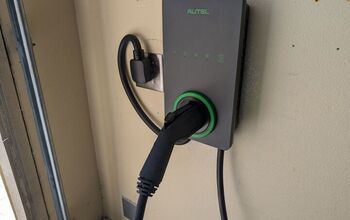

Comments
Join the conversation